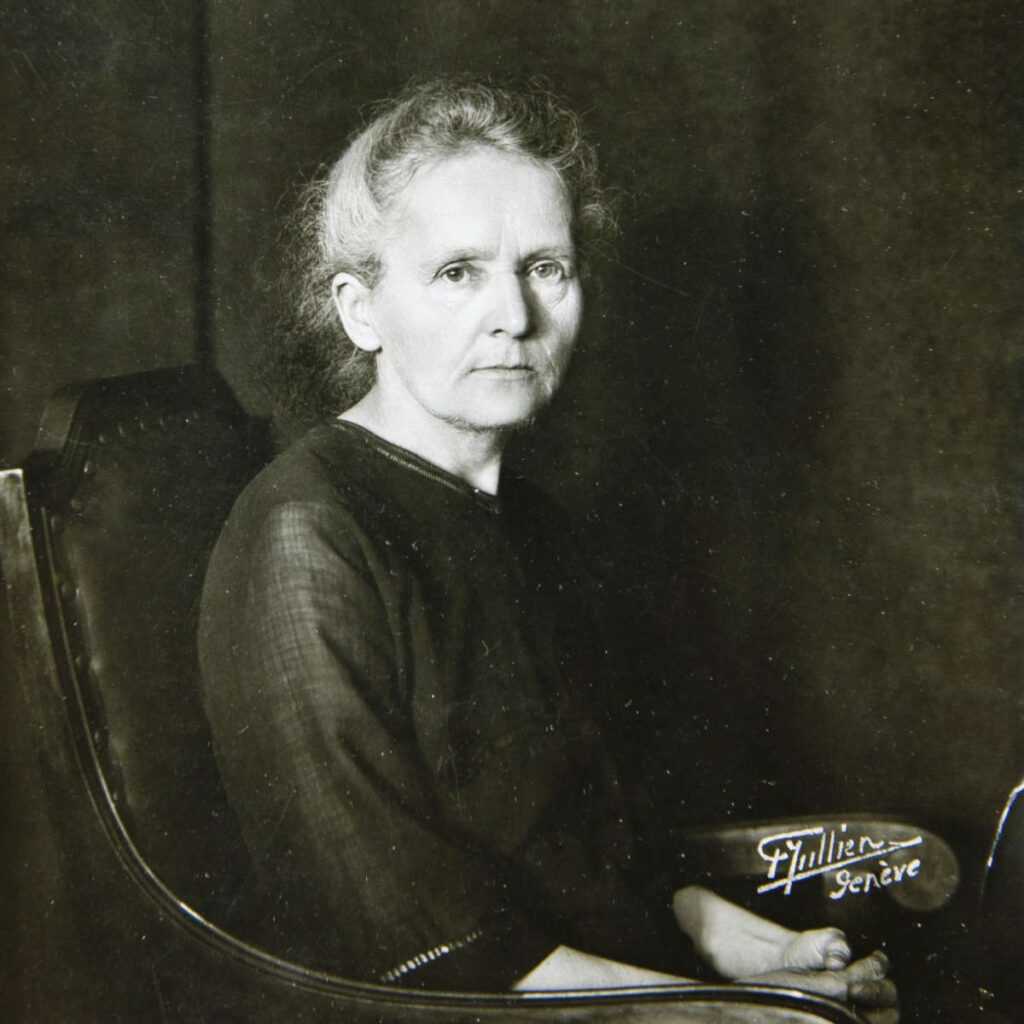Last Reviewed and Updated on June 14, 2022
Marie Curie is the first woman to win a Nobel Prize for the discovery of radioactivity, but this isn’t the only thing she was first at. Learn some of the most interesting facts about Marie Curie, a woman whose achievements changed the world.

1. Marie Curie was the first woman to win the Nobel Prize
She is also the first person to win the Nobel Prize in two scientific fields.
Curie was awarded half the Nobel Prize for Physics in 1903. She co-shared it with her husband.
Marie Curie was also awarded a Nobel Prize in chemistry in 1911. She got the award in recognition of her services in the advancement in the field of chemistry by discovering two new elements, polonium and radium, and the study of those elements. She was one smart cookie.
2. She was the first woman to become a professor at the University of Paris
Sadly this appointment came after the tragic death of her husband in 1906. Marie Curie was appointed to his seat at Sorbonne University in Paris. She became the first female professor in the history of the university.
She was the Professor of General Physics.
3. She was the youngest of five children
She was born the youngest of 5 children. Both parents were well-known teachers. Marie’s mother operated a boarding school for girls, she resigned when Marie was born.
Her father taught mathematics and physics. He would often bring his laboratory equipment home and instructed his kids on how to use it, something we can all be grateful for.
4. She and her sister made a pact to fund each other’s education
Maria and her sister Bronisława agreed Maria would give financial assistance to Bronisława during her medical studies in Paris. They agreed, that two years later, Bronisława would financially help Marie with her studies.
Maria became a home tutor and had a position as a governess (private tutor) for two years to hold her end of the bargain.
Bronisława invited Marie to live with her and her husband in Paris at the beginning of 1890, but Marie declined as she wasn’t yet financially ready. She did eventually go to Paris in 1891, living briefly with her sister and her husband.
5. She was the first woman in France to earn a doctorate
Certainly one of the more impressive facts about Marie Curie. There never was a doubt that Marie Curie was academically brilliant. In 1903, she became the first woman to earn her doctoral degree in France.
6. She coined the term “radioactivity”
When you discover something new, you need to name it.
French physicist Henri Becquerel discovered radiation rays given off by the element of uranium. He discovered what would be later called radioactivity. He discovered it by accident. Curie discovered thorium also gave off such rays.
As this phenomenon wasn’t limited to just one element, it needed a new name. Curie suggested “radioactivity” – radio + activity. Clever!
Curie was a doctoral student of Becquerel.
7. Polonium, an element she discovered, is named after Poland
Marie curie discovered Radium and Polonium. Radium was named after the Latin word for ray. Polonium was named after Poland, the birth country of Marie Curie. A great tribute to her place of birth.
8. She founded centers for medical research
She founded the Curie Institutes in Paris and in Warsaw. They still remain major centers of medical research even today.
During WW I, she established the first field radiological centers. These centers had a massive impact on the better treatment of injured soldiers. This saved many lives.
9. Her family had Nobel award-winning genes
Brilliance certainly ran in that family. She and her husband won 2 Nobel Prizes. But the Nobel prizes don’t stop there.
Irene Curie, her daughter received the Nobel Prize in Chemistry as well. She shared her prize with her husband. Still not enough?
While genes played no part in the 4th Nobel Prize, good taste in picking spouses did. Her other daughter Ève Curie married Henry Richardson Labouisse Jr. He was awarded the Nobel Prize for Peace.
They are currently the family with the most Nobel awards won. Impressive.
10. She died at the age of 66 of aplastic anemia due to radiation exposure
This is one of the saddest facts about Marie Curie. Her great achievements came at a price. She died at 66 of aplastic anemia. It is believed she contracted this condition from her long-term exposures to radiation, which caused damage to her bone marrow.
As radiation and its effect of it weren’t known at that time, there weren’t any safety measures in place when it was researched and used. Yikes!
